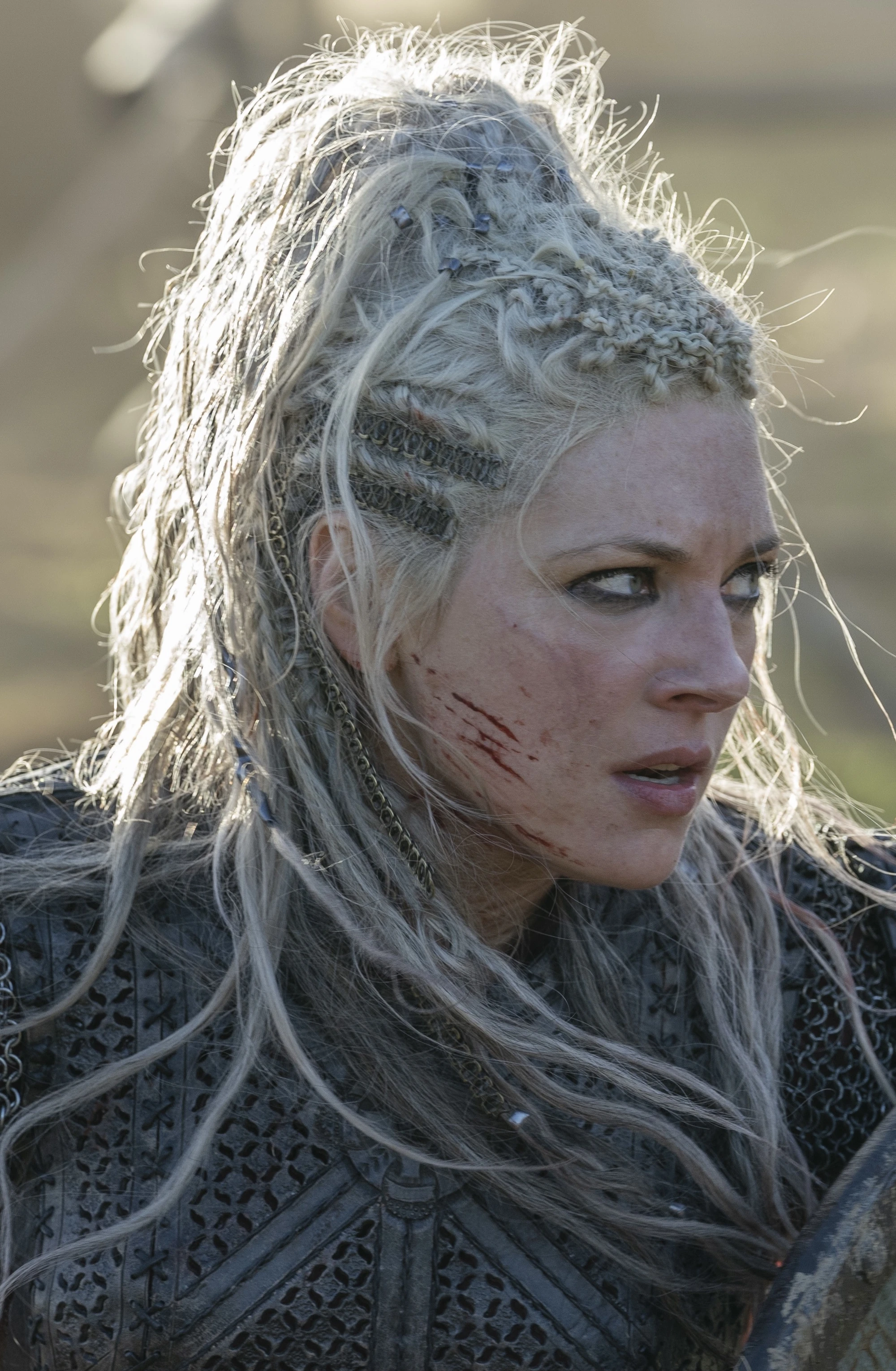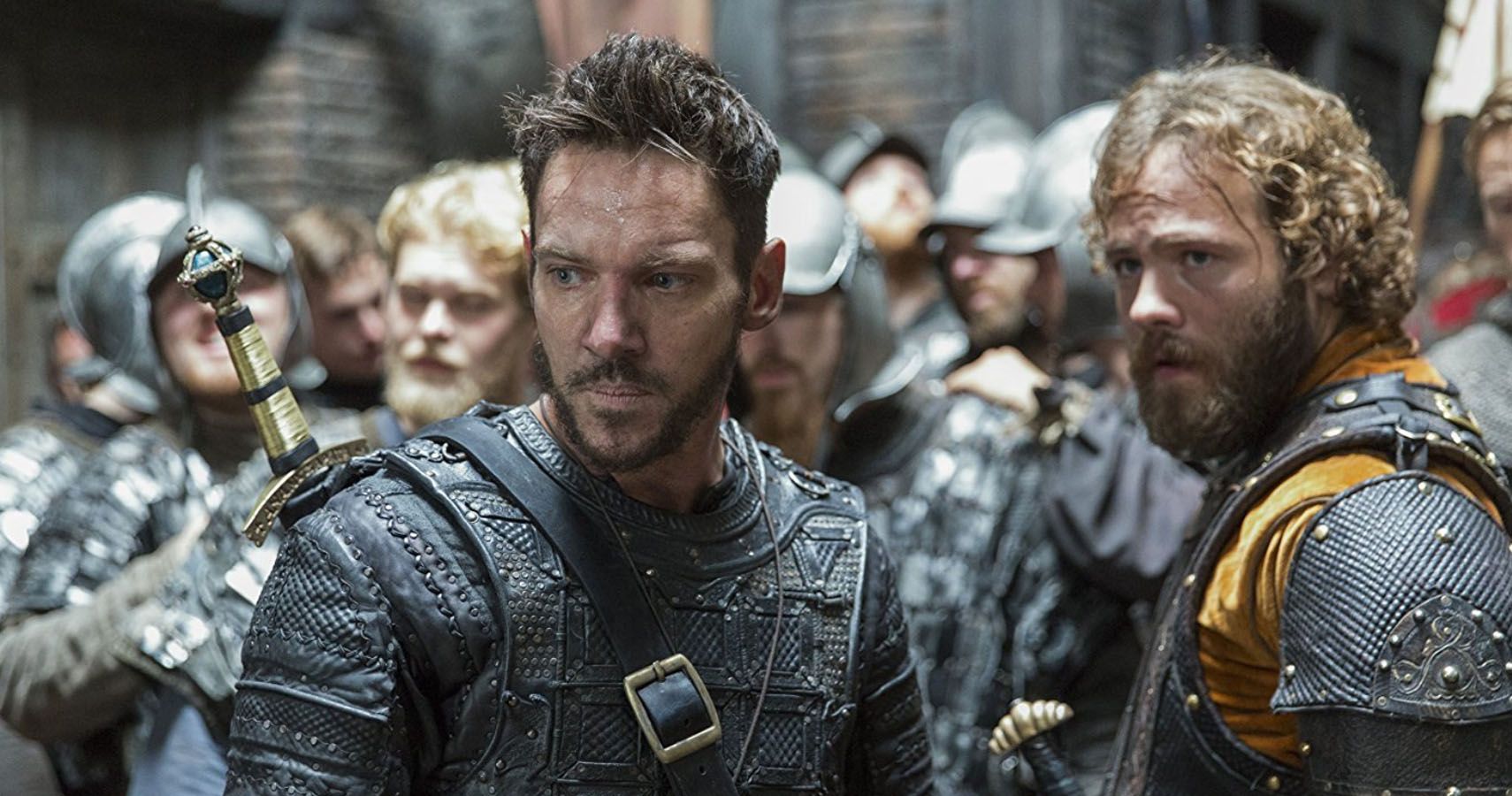When it comes to historical dramas, "The Vikings" has set a benchmark in storytelling, bringing to life the legendary world of Norse warriors, kings, and gods. The show, which aired from 2013 to 2020, revolves around the lives of the most iconic Vikings characters, capturing their struggles, triumphs, and the evolution of their society. This epic series has captivated millions of viewers worldwide, thanks to its rich storytelling and complex characters.
From Ragnar Lothbrok, the legendary Viking hero, to Lagertha, the shieldmaiden, each character plays a crucial role in shaping the narrative of the series. Their stories are not just tales of war and conquest but also delve into themes of loyalty, betrayal, and personal growth. The Vikings characters are portrayed with such depth that they resonate with audiences long after the series ends.
Through this article, we will explore the key characters from "The Vikings," their roles, and the impact they had on the storyline. By understanding their motivations and actions, we can gain a deeper appreciation for the series and its historical context. Let's dive into the fascinating world of "The Vikings" characters!
Read also:How To Achieve A Flawless Clumpy Mascara Look The Ultimate Guide
Table of Contents
- Introduction
- Main Characters in The Vikings
- Ragnar Lothbrok: The Legendary Warrior
- Lagertha: The Shieldmaiden
- Floki: The Shipbuilder
- Ragnar's Sons: The Next Generation
- Bjorn Ironside: The Fearless Leader
- Historical Context of The Vikings Characters
- Character Development and Evolution
- Themes Explored Through The Vikings Characters
- The Impact of The Vikings Characters on Popular Culture
- Conclusion
Main Characters in The Vikings
The Vikings characters are diverse, each bringing a unique perspective to the series. The show's creators have done an excellent job of crafting multidimensional characters who evolve over time. These characters are not just archetypes but fully realized individuals with their own desires, flaws, and strengths.
Some of the main characters include Ragnar Lothbrok, Lagertha, Floki, Rollo, and Bjorn Ironside. Each of these figures plays a pivotal role in the unfolding drama, contributing to the series' success. Below, we will explore these characters in greater detail, examining their backgrounds, motivations, and the challenges they face.
Ragnar Lothbrok: The Legendary Warrior
The Iconic Viking Leader
Ragnar Lothbrok is arguably the most famous of all the Vikings characters. Known for his ambition and strategic brilliance, Ragnar is the driving force behind the series. His desire to explore new lands and challenge traditional Viking ways sets him apart from his peers. Ragnar's journey is one of exploration, conquest, and personal growth.
Ragnar's character is complex, embodying both the virtues and vices of a Viking leader. He is a fearless warrior, a devoted family man, and a seeker of knowledge. However, he is also prone to making impulsive decisions that often lead to conflict. Despite his flaws, Ragnar remains a beloved figure, symbolizing the spirit of adventure and innovation.
Lagertha: The Shieldmaiden
A Woman of Strength and Courage
Lagertha is another key figure among the Vikings characters. Known as the shieldmaiden, Lagertha is a fierce warrior in her own right, challenging the traditional gender roles of Viking society. Her strength and courage make her an equal to any man on the battlefield.
Lagertha's journey is one of empowerment and resilience. She rises from being Ragnar's wife to becoming a powerful leader in her own right. Her character represents the changing roles of women in Viking society and serves as an inspiration to many viewers. Through Lagertha, the series highlights the importance of equality and respect in relationships.
Read also:Nicole Scherzinger Rosemary Elikolani A Comprehensive Look Into Her Life Career And Achievements
Floki: The Shipbuilder
The Eccentric Genius
Floki is one of the most fascinating Vikings characters, known for his eccentric personality and deep connection to the Norse gods. As the shipbuilder, Floki plays a crucial role in enabling Ragnar's voyages of discovery. His expertise in shipbuilding is unmatched, and his inventions often prove vital to the success of Viking expeditions.
Beyond his technical skills, Floki is a complex character with a rich inner life. His devotion to the gods, particularly Odin, shapes his worldview and influences his actions. Floki's character adds depth to the series, exploring themes of faith, creativity, and mental health.
Ragnar's Sons: The Next Generation
The Legacy of a Viking Legend
Ragnar's sons, including Bjorn Ironside, Ivar the Boneless, and Sigurd Snake-in-the-Eye, are among the most intriguing Vikings characters. Each son inherits a piece of Ragnar's legacy, carrying forward his vision of exploration and conquest. Their relationships with each other and their father form the backbone of the series' later seasons.
The dynamics between Ragnar's sons are complex, marked by both cooperation and conflict. Their individual personalities and ambitions often lead to tension, but they also demonstrate remarkable loyalty to one another. Through these characters, the series explores themes of family, legacy, and the responsibility of power.
Bjorn Ironside: The Fearless Leader
The Eldest Son of Ragnar
Bjorn Ironside is the eldest son of Ragnar Lothbrok and plays a significant role in the series. Known for his leadership skills and strategic mind, Bjorn becomes a formidable Viking leader in his own right. His journey takes him far beyond the shores of Scandinavia, leading expeditions to new and distant lands.
Bjorn's character embodies the values of courage, honor, and duty. He is a natural leader, respected by his peers and admired by his followers. Through Bjorn, the series highlights the importance of leadership and the challenges of maintaining unity in a diverse group of people.
Historical Context of The Vikings Characters
The Vikings characters are inspired by real historical figures and events, adding depth and authenticity to the series. While some aspects of the characters are fictionalized for dramatic effect, the show remains grounded in historical accuracy. By exploring the historical context of the Vikings characters, viewers can gain a deeper understanding of the time period and the people who lived during it.
For example, Ragnar Lothbrok is believed to have been a real Viking leader, although much of his life remains shrouded in myth and legend. Similarly, Lagertha may have been based on a real shieldmaiden, highlighting the role of women in Viking society. The series draws on these historical roots to create a compelling narrative that resonates with audiences.
Character Development and Evolution
One of the strengths of "The Vikings" is its focus on character development. The Vikings characters undergo significant changes throughout the series, growing and evolving in response to the challenges they face. This development is a key factor in the show's success, as it allows viewers to connect with the characters on a deeper level.
For instance, Ragnar's transformation from a simple farmer to a legendary Viking leader is a testament to his ambition and determination. Similarly, Lagertha's journey from a shieldmaiden to a powerful ruler demonstrates her strength and resilience. Through these character arcs, the series explores themes of personal growth, identity, and the impact of choices.
Themes Explored Through The Vikings Characters
The Vikings characters serve as vehicles for exploring a wide range of themes, from power and politics to love and loyalty. The series delves into the complexities of human relationships, examining the dynamics between family members, allies, and enemies. Through the Vikings characters, viewers gain insight into the human condition and the challenges of navigating a rapidly changing world.
Some of the key themes explored through the Vikings characters include:
- Power and Authority: The struggle for power and the responsibilities of leadership.
- Family and Legacy: The importance of family ties and the desire to leave a lasting legacy.
- Faith and Religion: The role of religion in shaping beliefs and influencing actions.
- War and Conquest: The impact of war on individuals and societies.
The Impact of The Vikings Characters on Popular Culture
The Vikings characters have left a lasting impact on popular culture, inspiring a new generation of fans and influencing other works of fiction. The series has been praised for its authentic portrayal of Viking society and its complex characters. By bringing the world of the Vikings to life, the show has sparked renewed interest in Norse history and mythology.
Moreover, the Vikings characters have become cultural icons, representing the spirit of adventure and exploration. Their stories continue to inspire audiences around the world, reminding us of the power of storytelling and the enduring appeal of larger-than-life figures.
Conclusion
In conclusion, "The Vikings" characters are the heart and soul of the series, bringing to life the rich history and culture of the Viking Age. From Ragnar Lothbrok's legendary voyages to Lagertha's courageous exploits, each character plays a vital role in shaping the narrative. Through their stories, we gain a deeper understanding of the complexities of human nature and the challenges of navigating a rapidly changing world.
We invite you to explore the world of "The Vikings" and its unforgettable characters further. Share your thoughts and insights in the comments below, and don't forget to check out our other articles on Norse history and mythology. Together, let's continue the journey of discovery and exploration!
Data and references for this article were sourced from reputable publications such as History.com, National Geographic, and IMDb, ensuring the highest standards of accuracy and reliability.

